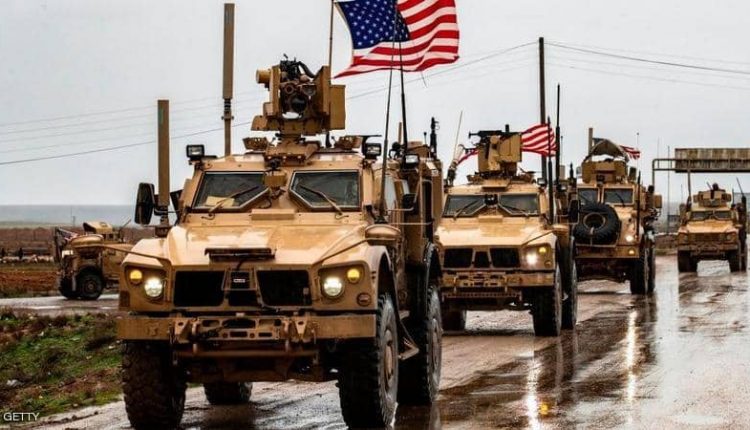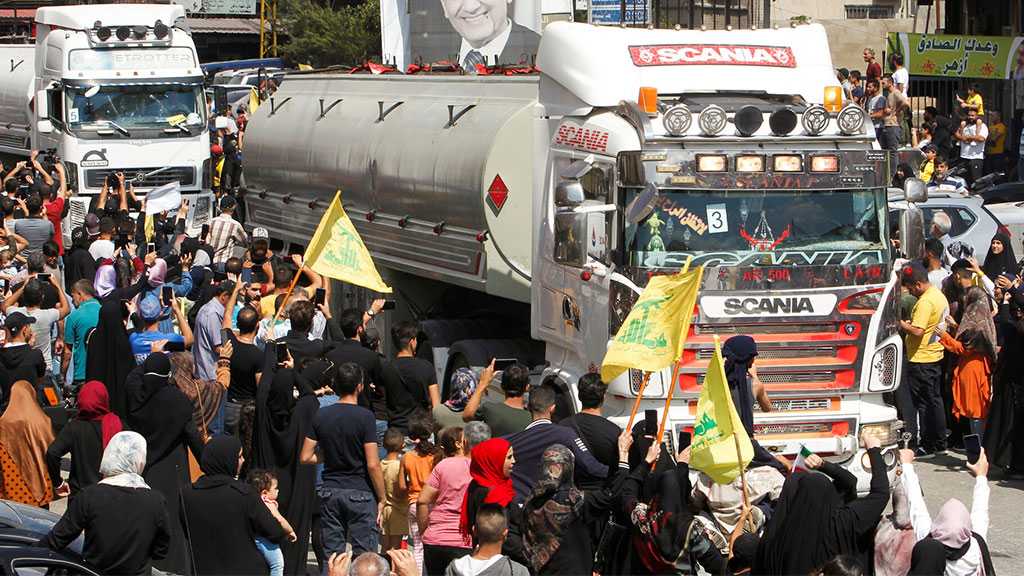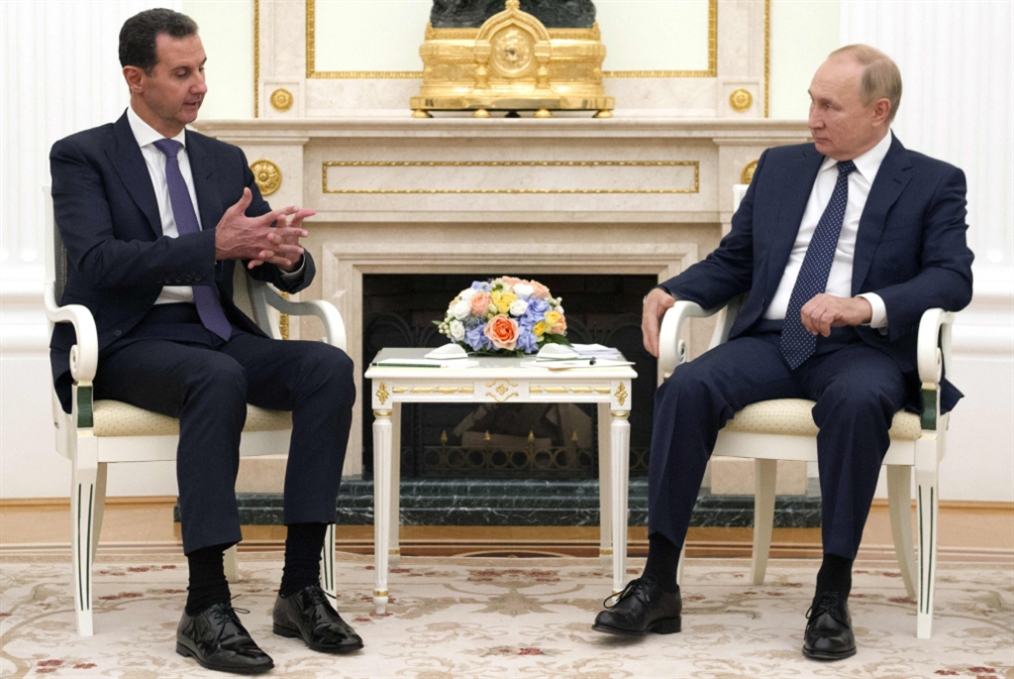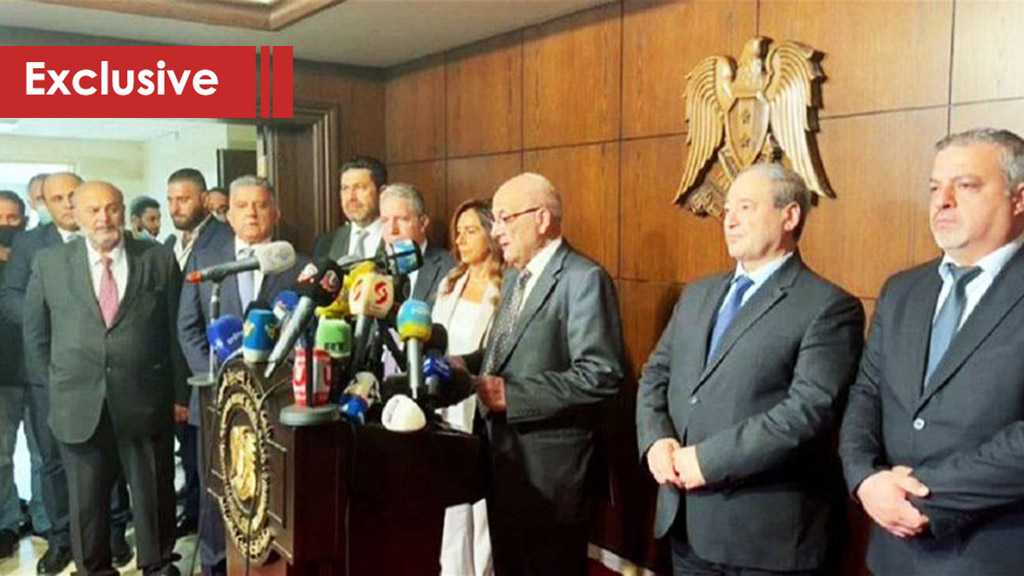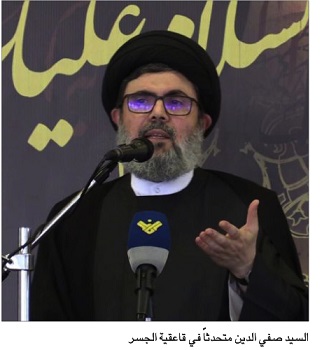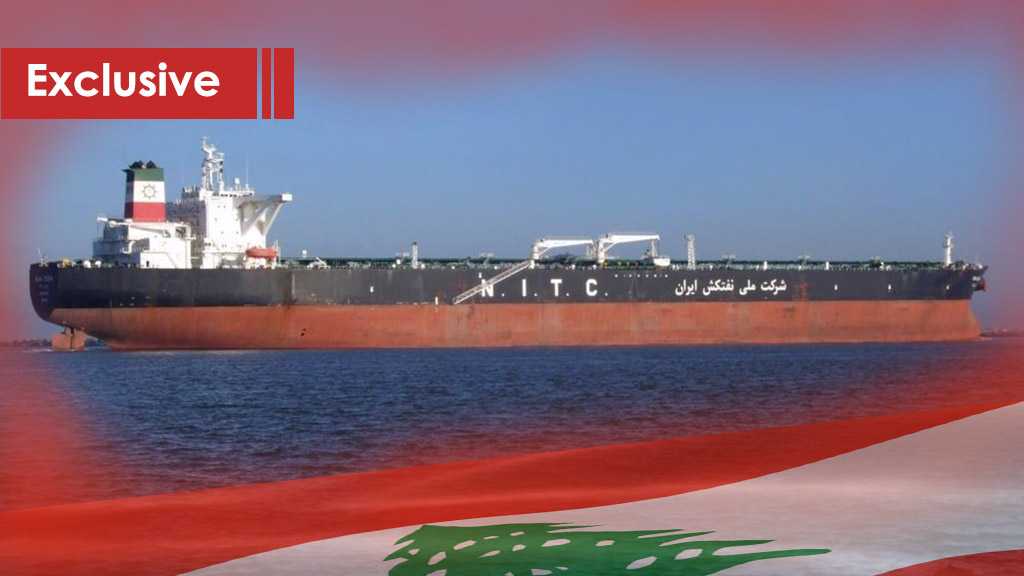Sayyed Nasrallah underlines that the continuation of the Lebanese Resistance’s operations and the Gaza front is “a settled matter not open for discussion.”

Hezbollah Secretary-General Sayyed Hassan Nasrallah affirmed that the Lebanese front continues, in various forms and methods, its operations in support of the Resistance in the Gaza Strip and imposes its own rules of engagement.
In a speech delivered on the eighth anniversary of the martyrdom of Commander Mustafa Badreddine, Sayyed Nasrallah underlined that the continuation of the Lebanese Resistance’s operations and the Gaza front is “a settled matter not open for discussion.”
He stressed that the entire world “has accepted this fact,” adding that this is why the Americans conveyed to Israeli Prime Minister Benjamin Netanyahu that there is no solution for the Northern front without a ceasefire in Gaza.
The Resistance leader addressed the settlers in northern occupied Palestine, who are eager to return to their settlements, calling on them to pressure their government to end the aggression on the Gaza Strip.
‘Israel’ hits a brick
Sayyed Nasrallah explained that evaluating the results of the war requires assessing the battlefield and not relying on Israeli claims about victory, indicating that “there is a consensus on the failure in Israel.”
He also pointed out that even allies of Israeli Prime Minister Benjamin Netanyahu mock him when he says he is “one step away from victory,” emphasizing that the issue “is not limited only to Israeli failure to achieve objectives but to more strategic losses.”
The Resistance leader touched on Israeli opinion polls regarding confidence in “Israel” as a “state” and in its army, highlighting that at least 30% of settlers believe that “Israel” is uninhabitable.
The Hezbollah chief considered that the “real achievement” is the failure of “Israel”, backed by the West, to retrieve its captives or achieve victory, not to mention its inability to protect its ships from missiles launched from thousands of kilometers away.
Sayyed Nasrallah added that the “image of deterrence” within the Israeli occupation entity is declining, especially after Iran’s Operation True Promise.
In the same context, he mentioned that senior Israeli generals say that Netanyahu, through his insistence on war, “is leading us to the abyss,” noting that Israelis also speak of “daily attrition in Gaza, in the support fronts, and in the economy.”
He added that “Israel” fears withdrawing from Gaza because that would mean its defeat, which comprises a disaster for the entity, indicating that the Israeli leadership “has no vision for the day after the war.”
In light of this, Sayyed Nasrallah asserted that the Israeli occupation is “facing a dead end and is searching for any image of victory,” pointing out that “Netanyahu wants to invade Rafah to escape the image of defeat.”
As for the mediators’ proposal that Hamas agreed to, Sayyed Nasrallah said that it surprised Netanyahu because it meant his defeat and victory for Hamas (because it fulfilled Hamas’ demands).
Therefore, “the Israeli occupation has two options, either return to the mediators’ document, which means defeat for Israel, or pursue the [war of] attrition,” he maintained.
‘US deception should not trick anyone’
In a different yet related context, the Secretary-General of Hezbollah spoke about the continued US support for the Israeli occupation in its war on Gaza, stressing that “even if the United States stops an arms deal bound for Israel, it will re-allow it as this constitutes an American deception because what is happening is nothing more than a tactical dispute between the United States and Israel.”
“These theatrics that we are witnessing nowadays should not deceive anyone, as Washington stands with Israel [no matter what],” he stressed.
Furthermore, Sayyed Nasrallah maintained that what happened at the United Nations and the International Court platforms confirms the US’ continuous, unabating support for “Israel” and that the US position has not changed at all.
Related News
- Hezbollah wreaking havoc in Israeli consciousness: Israeli general
- Hezbollah stockpiles thousands of precision munitions: Israeli analyst
Sayyed Nasrallah also pointed out that one of the most significant results of the war is “Israel’s” acknowledgment that it did not achieve victory, highlighting that 70% of Israeli settlers are demanding the resignation of the Chief of Staff Herzi Halevi.
He also emphasized that Operation Al-Aqsa Flood, the resilience of the people, and the images of the blood of children and women in Gaza and southern Lebanon have shown the true colors of “Israel”.
Sayyed Nasrallah reiterated that among the goals of the Palestinian Resistance and the Axis of Resistance declared since the beginning of Al-Aqsa Flood battles was to revive the Palestinian cause, remind the world of forgotten Palestine, and uphold the rights of its people inside the occupied territories and in the diaspora.
“The most important scene that reflects the victory of the Resistance is when the Israeli #UN delegate raised a picture of the leader Yahya al-Sinwar,” he maintained.
Sayyed Nasrallah pointed out that, since the start of Al-Aqsa Flood, the Palestinian cause is now the talk of the town worldwide, including at the United Nations, where most countries demand a ceasefire.
The Secretary-General of Hezbollah also touched on the protests taking place at universities in the United States and across Europe, confirming that these protests, bearing the name of Palestine, “are the fruit of October 7 and following events.”
He mentioned that some Arab rulers were about to sign the death certificate of the Palestinian cause through normalizing ties with the Israeli occupation, which was looming in the coming months.
He also noted that some Arab regimes and media outlets are now promoting the Israeli occupation entity as “the only democratic state” in the region.
US, EU hindering Syrian refugees return
On the internal Lebanese front, and specifically regarding the file of Syrian refugees, Hezbollah’s Secretary-General confirmed that there is a “consensus to address the issue,” explaining that the meeting of the Lebanese Parliament, next Wednesday, is “an opportunity to present practical proposals” to this end.
Sayyed Nasrallah pointed out that everyone is in favor of the return of Syrian refugees to their country, with the exception of some non-governmental organizations, which means that “the main obstacle standing in the way of the return of Syrian refugees to their country is the US along with the EU.”
In this context, Sayyed Nasrallah recalled his visit to Syria where he met, years ago, with the Syrian President, Bashar al-Assad, who encouraged the return of the refugees to al-Qusayr, stressing that “those who were preventing them from doing so were the EU-funded organizations.”
The Lebanese Resistance leader considered that “it is inevitable to communicate with the Syrian government to ensure the return of refugees,” stressing that a delegation must be formed to visit countries, such as the United States, in order to convince them of the need for their return.
He also called for “taking a Lebanese national stance to open the sea for the voluntary departure of Syrian refugees to Europe,” explaining that this is when the West and the EU “will rush to Lebanon and pay 20 billion dollars instead of one” to prevent so when such a decision is made.
“When we are our own masters and not slaves and we possess the elements of power, that is when we can impose our conditions on the enemy,” Sayyed Nasrallah affirmed.
He also emphasized that Syria is capable of getting back on its feet within a few years once the sanctions imposed on it are lifted.
Syria’s stance regarding Palestine firm, consistent
Sayyed Nasrallah stressed that they wanted to force Syria, through the global war waged on it, into the American grip or into a civil war, stressing that it had “come out of the war and still maintains its [original] position, despite the siege and the difficult conditions” imposed on it.
The Lebanese Resistance leader also indicated that Damascus’ stance regarding the Palestinian cause is firm and consistent, affirming that the goal behind Hezbollah’s engagement in the war in Syria was to keep the country within the Axis of Resistance.
Regarding the occasion, the Secretary-General of Hezbollah confirmed that Martyr Sayyed Mustafa Badreddine deserved a medal for every walk of his life as a freedom fighter and a combatant, as a wounded individual, as a captive, as a commander, as an achiever, and as a martyr.
Sayyed Nasrallah stressed that Martyr Badreddine “is present across all battlefields, as is the case with all martyrs, especially the leaders,” explaining that the Resistance that is fighting today is “a cumulative result of the past and present leaders and fighters and those who will join in, any time in the future.”
Related Stories
- Hezbollah wreaking havoc in Israeli consciousness: Israeli general
- Nasrallah’s terror balance that ‘Israel’ can’t confront: Israeli media
- Zahedi martyred with Gaza in mind, Sayyed Nasrallah says
- Abu Obeida: We lost contact with group assigned to protect 4 captives
- Andrei Belousov as Russia’s Defense Minister; what does it signify?
- Gaza under Israeli fire: 220 days of genocide and loss
- ‘Israel’ tortures, abuses Palestinian detainees in al-Naqab Prison
- Day 220 in Gaza in detailed numbers; 35,091 martyred, 78,827 injured
- Israeli troops parents urge ‘Israel’ to halt ‘death trap’ Rafah attack
- US military families beg Biden to ‘hold ground’ on Rafah
- Russia ready to settle Ukraine war on battlefield if West wants so
- Warsaw cancels talks with Kiev over corruption fears
- IRGC: Iran’s power lets it ‘fearlessly’ take down global arrogance
- News from Nowhere: How the mighty fall
- Defeating Zionism, a global responsibility
- Gideon Falter, Campaign Against Antisemitism instruments of the Zionist entity
- Calling out UK for its brazen protection of pro-occupation forces
- Israelis in the North seek to partition, become ‘State of Galilee’
- CNN exposes horrible Israeli torture methods on Palestinian detainees
- Hezbollah attacks Israeli Iron Dome, disables components amid 8 ops.
- Hezbollah UAVs precise, unobstructed: Israeli media
- Hezbollah introduces ‘Jihad Mughniyeh’ heavy rocket in Al-Aqsa Battle
- 5 Israeli troops killed in fiercest Rafah, Gaza confrontations
War on Gaza
Filed under: "Israel", Israeli Crimes crimes against humanity, Lebanon, Lebanon Islamic Resistance - Hezbollah, Palestine, Palestinian people, Syrian President Bashar Al-Assad | Tagged: Al-Aqsa Holly Mosque, Benjamin Netanyahu, Besieged Gaza Strip., Caesar’s law on Syria, Deception of the American Empire, Gaza ceasefire, Global war on Syria, Hamas Resistance movement, Iran's Operation True Promise, Israeli Brutal Aggression, Israeli settlers, liquidation of the Palestinian cause, Operation Al-Aqsa Flood, Palestinian cause, Palestinian Resistance factions, Rafah Invasion, Sayyed Hassan Nasrallah, Sayyed Mustafa Badreddine (Zulfiqar), South Lebanon, Syrian refugees, The Axis of Resistance, Yahya Sinwar | Leave a comment »





















